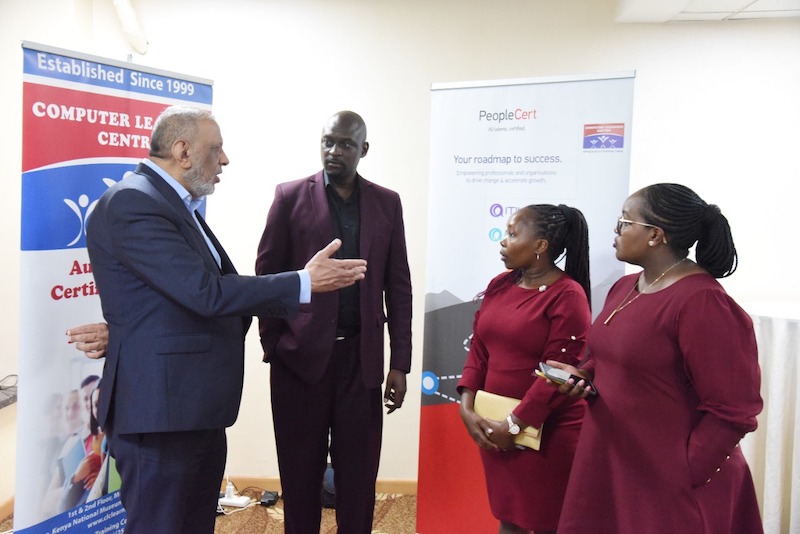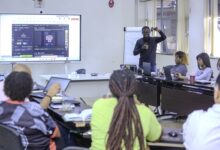Changing IT Landscape Calls For Workforce Certification

Computer Learning Centre, an IT and Business training provider, and PeopleCert, a global leader in the assessment and certification of professional skills, yesterday held a joint breakfast session to sensitise organisations on the importance of staff certification. The coming together of the two organisations has been buoyed by the changes taking place in the IT ecosystem, including Big Data and the Internet of Things (IoT).
“A lot of data is coming out of various’ providers’ IT infrastructure. But whatever IT services being offered must add value to customers. Certification is therefore imperative as it enables African workforce to work anywhere across the globe”, said Mr Kevin Kamanga, Lead Trainer, Business Courses, CLC Africa.
Mr Kamanga was speaking on the side lines of a breakfast event held in Nairobi under the theme Emerging trends in IT Service Management and Project Management: Best Practice Frameworks Based on PeopleCert. He noted that in terms of mega projects, a lot of money was being lost as people embark on projects without proper guidelines. But with certification, African workforce can play in the global arena as it ensures structures have been put in place to ensure everything goes according to plan.
The event was held to sensitise organizations in Kenya about the need to continuously re-skill their employees and create a linkage between academia and the industry. The industry needs to speak to universities to know what to recalibrate because it influences the future which academia wouldn’t know how to teach if they don’t get feedback from the industries. This is the reason why companies need to create simulations to help students have industry experience on how to solve real problems.
According to Romeo Mabasa, Business Development Manager, People Cert, individuals and organisations cannot leave to chance skills development capacity building because there are so many opportunities created by massive online courses that one can take to develop themselves by at least learning one course per month to stay relevant.
“Knowledge wears out if you don’t use it and therefore one has to keep on re-skilling to be relevant in the current job market. These job markets are driven by the 21st century skills such as collaboration, analytical and communication skills, which are driven by the 4th industrial revolution that requires the knowledge base to be grown by robotics, Virtual reality, GIS, among other opportunities driven by technology”, said Mabasa.
“There is need to create a linkage between academia and the job industry. Organizations need to speak to universities to know what to recalibrate because it influences the future which academia wouldn’t know how to teach if they don’t get feedback from the industries. This is the reason why companies need to create simulations to help students have industry experience on how to solve real problems” says Aunally Maloo the CEO, CLC Africa.
The advent of the Covid-19 pandemic has forced organizations to reconsider how they do business through digital transformation. For instance, a lot of employees have to work from home despite the infrastructure not being ready for cloud environment. This forces the organizations to educate their employees on some cloud skills that influence companies to build and be prepared for the future.
Follow us on Telegram, Twitter, Facebook, or subscribe to our weekly newsletter to ensure you don’t miss out on any future updates. Send tips to info@techtrendske.co.ke.




